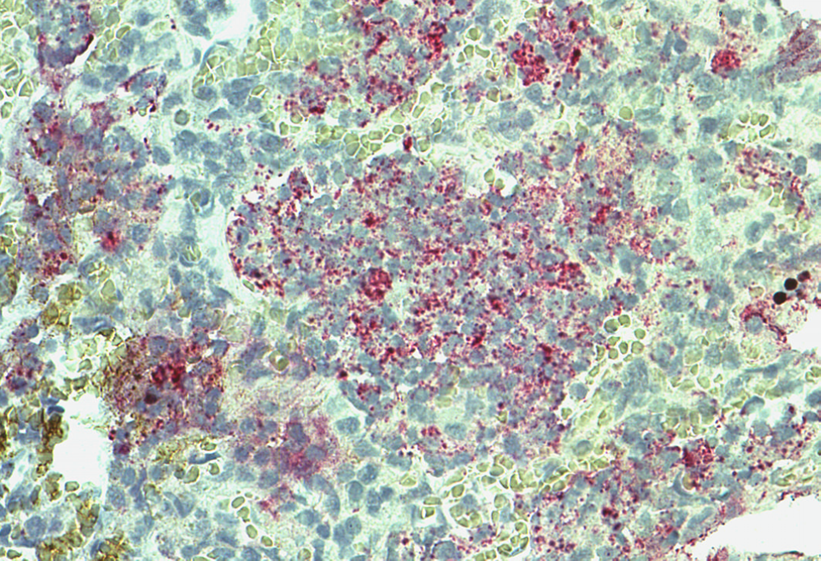
CHAMPS RESOURCES
CHAMPS Resources
A child who died of a notifiable, vaccine-preventable disease, complicated by bacterial pneumonia
A 3-year-old female died at home with fever, cough, trouble breathing, night sweats, convulsions, itch and a skin rash. Her death followed that of a younger sibling, and both children were not up to date on vaccinations.
Five days prior to death, she developed a fever, followed by three days of chest pain, a cough and rash, and one day of loose stool and convulsions. This led the family to seek care from a local a community referral center where she was evaluated and discharged with prescriptions for an antibiotic, amoxicillin and other medications to help manage her symptoms. The following morning, her parents also sought and administered a traditional therapy. The child passed away the next evening at home.
Uncovering the Cause
CHAMPS technicians noted disseminated black spots on the skin during the Minimally Invasive Tissue Sampling (MITS) procedure. Molecular diagnostic tests detected measles virus in blood, cerebrospinal fluid (CSF), lung, and nasopharyngeal samples.
Pathologists found bronchopneumonia from samples of the lungs, with immunohistochemical (IHC) evidence of Streptococcus spp. and Haemophilus influenzae.
The determination of cause of death (DeCoDe) panel confirmed that this child’s cause of death was underlying measles, complicated by bacterial pneumonia.
Pathology images


Family Follow-up
Education around the national child immunization program and the importance of vaccination for preventing disease was provided to the family. The father and mother were appreciative of available vaccination and prevention initiatives stating:
“I always [think health is important], especially the work you are doing to know causes of death of children. I will be an advisor for others. You have to expand this study to others places…”
Public Health Implications
Measles is a highly contagious disease that spreads very easily from person-to-person, meaning circulation among the community has the potential to result in numerous infections and deaths. It remains an important contributor to under-5 mortality globally, despite the availability of a safe, effective vaccine. The burden of measles is particularly high in Africa, where 1 in 10 young children who get measles will die.
The World Health Organization (WHO) recommends that every child receive at least 2 doses of measles vaccine—one at 9 months and the second between 15-18 months of age. A 95% coverage rate for both doses of the vaccine is recommended to eliminate the spread of measles globally and reduce under-5 deaths. National immunization programs and mass vaccination campaigns have worked to reduce the global incidence of measles by 83% since 2000, but recent years have shown an upward trend in cases, with incidence doubling from 2017 to 2018—a trend that has continued in 2019 (WHO, 2019). CHAMPS data further support the need for national immunization campaigns, showing that measles is a common concern in unvaccinated children, particularly in areas where there are outbreaks.
The COVID-19 pandemic further exacerbates issues surrounding vaccine coverage because people are afraid to take their children to health centers to get vaccinated. There is a need for further support to strongly encourage people to vaccinate their children, especially during the COVID pandemic. CHAMPS sites continue to work on health promotion within our target communities, providing messaging around vaccination within demographic surveillance systems (DSS), supporting existing vaccine clinics at community health centers, and reinforcing education for health facility staff, including review of children’s vaccination cards anytime a child comes in for consultation.
Interested in more CHAMPS updates?
Email data@champshealth.org for information about CHAMPS pathology slide images.


